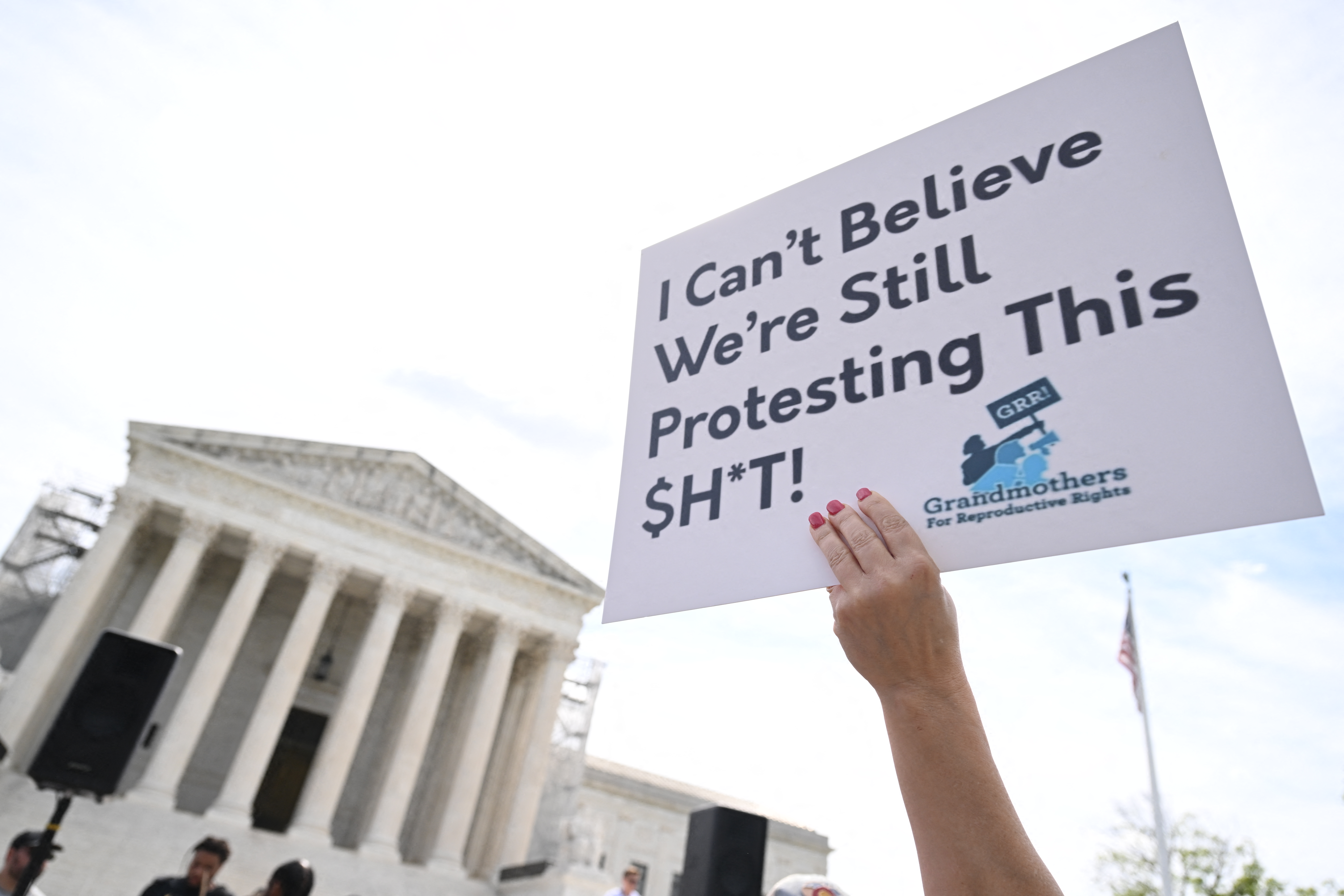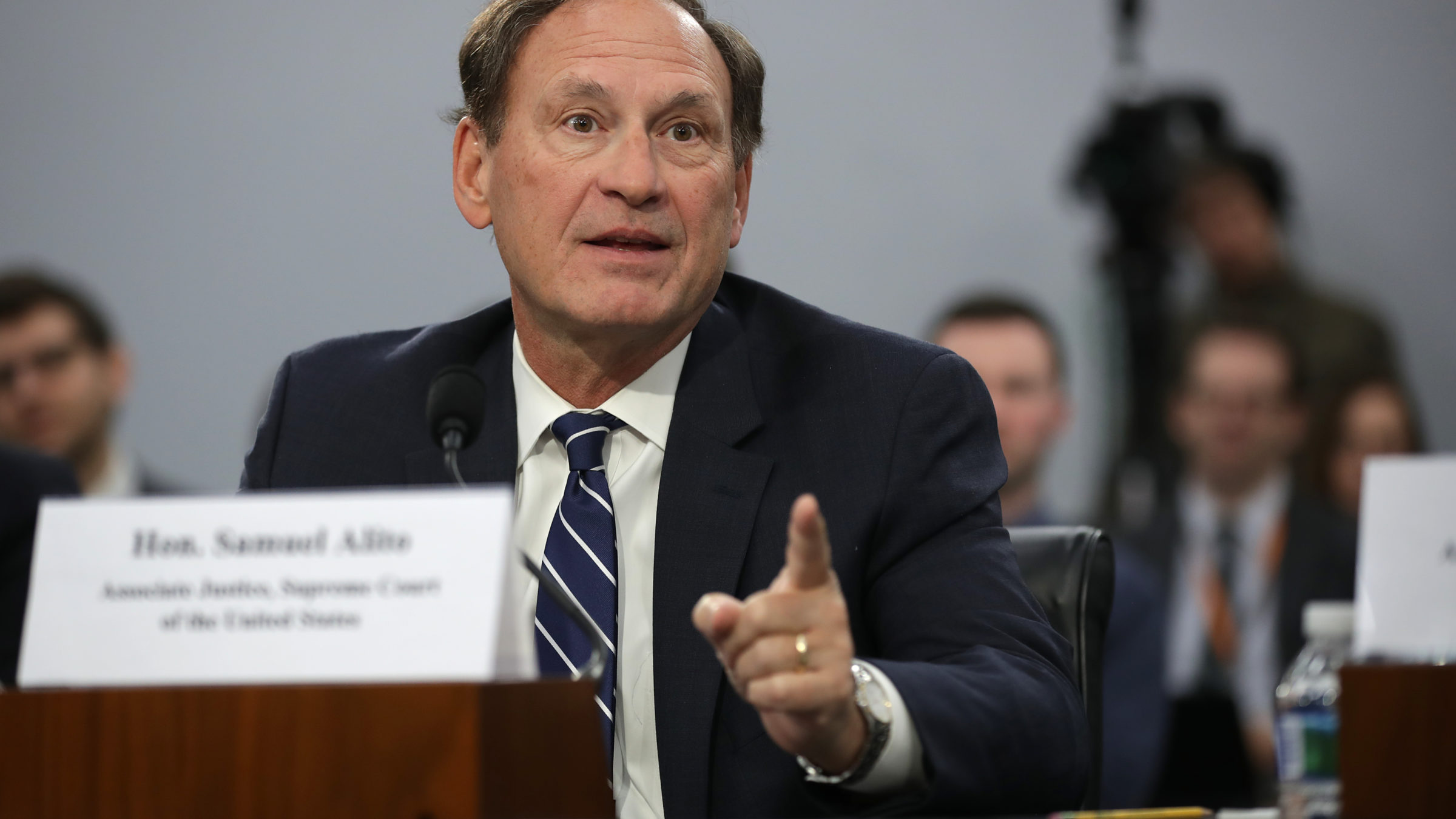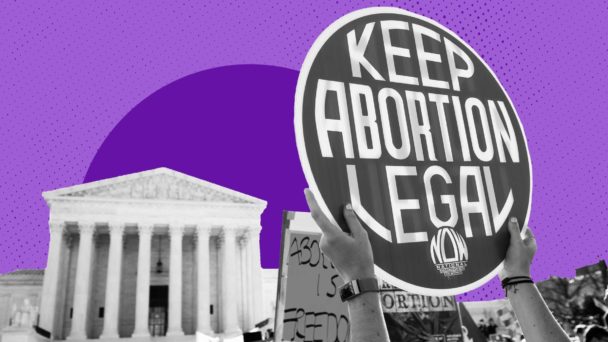The Supreme Court heard oral argument today in a pair of cases, Moyle v. United States and Idaho v. United States, about anti-choice states’ ability to prevent pregnant people from receiving emergency medical care. Under a federal law called the Emergency Medical Treatment and Active Labor Act, or EMTALA, hospitals that receive Medicare funds are required to provide “stabilizing” care to patients with emergency medical conditions—basically, to stop the condition from getting any worse.
The justices are hearing these cases because, in the Supreme Court’s post-Roe v. Wade hellscape, there’s a question about whether the law applies to pregnant patients, too, if the necessary stabilizing care is an abortion—or if, by virtue of being capable of pregnancy, patients in certain Republican-controlled states might just be shit out of luck.
Like more than a dozen states, Idaho criminalizes nearly all abortions, theoretically allowing for exceptions when necessary to save the life of the mother and when the pregnancy is the result of rape or incest. In practice, the law amounts to a total ban: Doctors don’t know just how imperiled women’s health must be before they can intervene without fear of prosecution, and sexual abuse survivors are often unwilling or unable to “prove” to the government that they were assaulted.
This case is before the Court to resolve the conflict between Idaho’s ban and federal law. The government argues that EMTALA preempts Idaho’s ban “in the narrow but important circumstance” where an ER doctor has to end a pregnancy to stabilize a condition that threatens serious harm to the patient’s health, but state law prohibits the doctor from doing so. Idaho disagrees, and argues that the only care available under EMTALA is that which is allowed by state law—meaning, basically, no care at all. Twenty-two other Republican-led states support Idaho’s position in an amicus brief.
This shouldn’t be a hard question: it used to be common knowledge among lawyers that state laws are preempted by federal laws, not to mention common knowledge among people with consciences that doctors are supposed to care for patients who are in medical crises. But the Supreme Court muddied the waters when it rescinded the constitutional right to abortion in Dobbs v. Jackson Women’s Health Organization. Today, these common-sense principles are now at risk of being hopelessly upended by the Court, which would allow states to deny patients federally protected care and lead to suffering or even death.

(Photo by SAUL LOEB/AFP via Getty Images)
The liberal justices repeatedly made the perversity plain during Wednesday’s oral argument. EMTALA requires doctors to provide treatment for emergencies, which could include a host of grave but not necessarily fatal medical conditions like sepsis, kidney failure, uterine scarring, and so on. Yet Idaho’s law limits abortion to circumstances where “necessary to prevent the death of the pregnant woman.” Justice Elena Kagan asked Idaho’s attorney, Josh Turner, how he could claim that a federal law that “says you don’t have to wait until the person is on the verge of death” wouldn’t preempt Idaho’s law. “If the woman is going to lose her reproductive organs, that’s enough to trigger this duty on the part of the hospital to stabilize the patient,” she said.
Justice Sonia Sotomayor observed this key conflict as well. “If objective medical care requires you to treat women who present the potential of serious medical complications, and abortion is the only thing that can prevent that, you have to do it.” Yet Idaho law requires doctors to determine not only if a “serious medical condition” exists, but also that the person will die if it goes untreated. “That’s a huge difference,” Sotomayor said.
Turner’s argument depends on a strange reinterpretation of basic constitutional law. Under the Supremacy Clause, federal law takes priority over conflicting state laws. But Turner flipped preemption “on its head,” as Sotomayor put it, by insisting that EMTALA is limited by what treatments are available under Idaho law. Idaho’s reading of EMTALA, Kagan pointed out, would give states the authority to ban abortion “even if death is around the corner.” Turner did not disagree: “Yeah, and that understanding is a humble one with respect to federalism,” he said. To which Kagan replied, “Maybe too humble for women’s health.”

When a woman asserts that she has a legal right (Photo by Chip Somodevilla/Getty Images)
Justice Samuel Alito was much more content to play chicken with women’s lives, asking Solicitor General Elizabeth Prelogar whether the risk of serious impairment or bodily dysfunction must be “permanent” to trigger EMTALA’s protections, or if it could be “temporary.” Alito was engaged in the same kind of calculation playing out in ERs across the country—how much hemorrhaging is too much hemorrhaging? What’s a little kidney failure when you have one to spare?
Alito further complained that no one was giving due importance to what he called the “unborn child,” emphasizing potential life at the expense of actual life. Prelogar made clear that women whose health is threatened by emergency medical conditions cannot be denied EMTALA’s protections because they are pregnant. Otherwise, “the woman is not an individual herself and that she doesn’t deserve stabilization,” she said. “Nobody’s suggesting that,” Alito said, seemingly indignant that someone noticed his method of statutory interpretation was just misogyny with a law degree.
This disregard for the lives of women is central to abortion bans and the Court’s jurisprudence. If the Court rules for Idaho, it would rewrite EMTALA to carve pregnant people out from the federal guarantee of emergency medical care, contributing further to the country’s maternal mortality crisis. The justices on the Court will never have to worry about the possibility of being frantically helicoptered to another state so a doctor isn’t charged with a crime for providing medical treatment. Idahoans are not so lucky.




